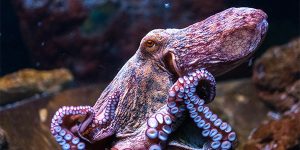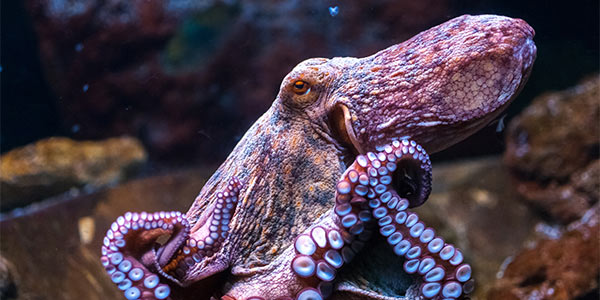This article is tailored for science enthusiasts, particularly those intrigued by marine life, genetics, and the mysteries of nature. Readers will benefit from gaining insights into the fascinating ability of octopuses and squid to rewrite RNA without altering DNA, a phenomenon that challenges conventional genetic understanding and offers new avenues for scientific exploration.
Introduction:
Dr. Olivia Reynolds, a dedicated marine biologist, invites us to plunge into the depths of the ocean’s mysteries. In the heart of marine life’s enigma, we uncover an astonishing revelation that challenges our understanding of genetics. Octopuses and squid, the enigmatic denizens of the deep, possess a genetic quirk that defies convention: they rewrite their RNA while leaving their DNA untouched. This article embarks on a journey to explore this captivating genetic anomaly, shedding light on its implications for the creatures themselves and our broader understanding of genetics.
A Paradigm-Defying Discovery
In the realm of genetic research, the notion of altering genetic information has long been synonymous with changing DNA sequences. However, the discovery of RNA editing in octopuses and squid has thrown a curveball at this traditional perspective. RNA, the intermediary molecule responsible for translating genetic instructions from DNA into proteins, is typically considered a faithful copy of its DNA template. Yet, in these marine marvels, researchers uncovered a different narrative.
Scientists stumbled upon this genetic oddity as they delved into the genomes of cephalopods. They found that certain genes in octopuses and squid underwent post-transcriptional modifications, resulting in alterations in the RNA’s code. Remarkably, these changes did not impact the underlying DNA sequence. This revelation opened the door to an uncharted territory of genetic adaptability that challenges our understanding of the interplay between DNA and RNA.

Rewriting RNA: The Intricate Mechanisms
The mechanics behind RNA editing in octopuses and squid are complex and intricate. At the heart of this process are enzymes called ADARs (adenosine deaminases acting on RNA), which are responsible for catalyzing the transformation of a specific RNA base, adenosine, into another base, inosine. The genetic code interprets inosine as guanosine during translation, effectively altering the protein sequence that the RNA encodes.
This RNA editing phenomenon is far from random; rather, it is tightly regulated and often occurs in regions of the RNA molecule that are crucial for protein function. This intricate process equips these creatures with a unique adaptability. It allows them to fine-tune protein expression in response to varying environmental conditions, an attribute that is invaluable for survival in the dynamic oceanic ecosystems they inhabit.
The Implications for Evolution and Intelligence
The ability of octopuses and squid to rewrite RNA holds profound implications for their evolution and intelligence. Cephalopods have long captivated researchers with their exceptional cognitive abilities, including complex problem-solving, communication, and even tool use. The discovery of RNA editing adds another layer to this fascination.
RNA editing contributes to the diversification of protein functions within these creatures without altering their underlying genetic blueprint. This flexibility likely plays a role in their rapid adaptation to changing environments. The evolutionary advantage offered by such adaptability could shed light on the extraordinary success of these animals across a wide range of oceanic niches.
Lessons for Science and Medicine
The study of octopuses’ and squid’s RNA editing has ramifications beyond marine biology. This genetic phenomenon challenges our conventional understanding of genetic stability and opens doors for innovative applications. In the realm of medical research, RNA editing holds potential for treating genetic diseases caused by mutations. By harnessing similar mechanisms, scientists could theoretically correct specific RNA sequences without the need for invasive DNA manipulation.
Additionally, this phenomenon underscores the importance of genetic diversity. The ability to generate functionally distinct protein variants through RNA editing enhances the adaptability of these creatures. In a broader context, it serves as a reminder of the critical role that diversity plays in the survival and evolution of species.
Conclusion
As we resurface from the depths of genetic exploration, guided by the expertise of Dr. Olivia Reynolds, we carry with us a newfound appreciation for the intricacies of life’s building blocks. Octopuses and squid, with their RNA-editing prowess, have illuminated the complexity of genetic processes and challenged the boundaries of our understanding. This genetic enigma urges us to approach scientific inquiry with open minds and curiosity, reminding us that the secrets of life’s code are far from fully deciphered. In the mysterious dance of genetics, these ocean-dwelling creatures beckon us to dive deeper, explore further, and marvel at the wonders that await discovery.




